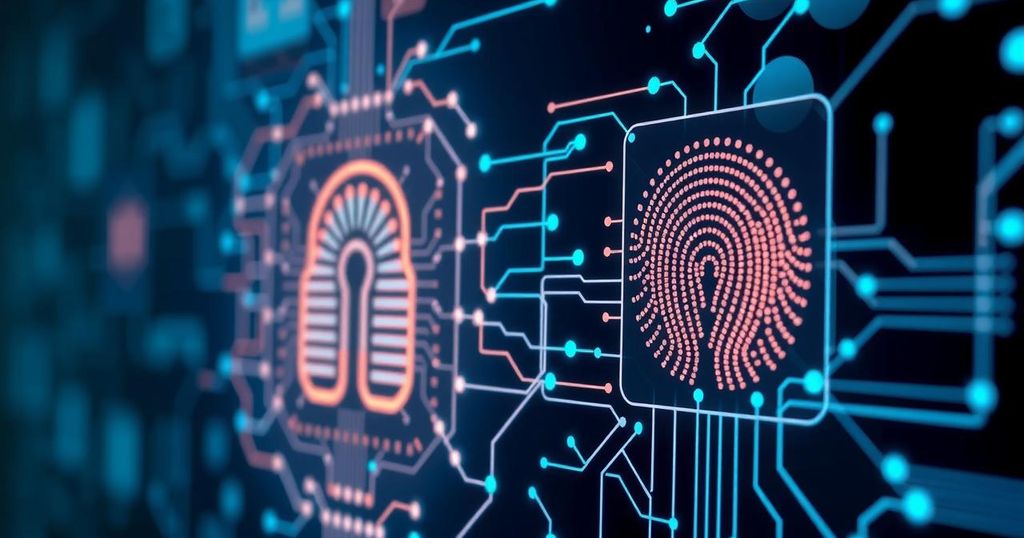Biometric technology leverages unique biological traits for identification and security, significantly enhancing patient care, operational efficiency, and data protection in the healthcare sector. With rising concerns over data breaches, the adoption of biometrics is pivotal in preventing medical fraud and ensuring patient safety while aligning with regulatory standards like the Data Protection Act 2020.
Biometric technology is revolutionizing healthcare by utilizing unique biological attributes such as fingerprints, facial recognition, and iris patterns for identification and security. These advanced identification methods are being integrated into healthcare systems globally to enhance patient care, optimize operations, and safeguard sensitive information. With ongoing modernization efforts in the sector, adopting biometric technology stands out as a key consideration. The increasing incidence of data breaches in various institutions highlights the critical need for robust data security measures, particularly in healthcare, which handles highly sensitive data. This concern has been underscored by government initiatives, including the implementation of the Data Protection Act 2020, aimed at fortifying data security across all sectors. Biometric technology is gaining traction in various fields—from banking to law enforcement—due to its exceptional accuracy in individual identification. In healthcare, its applications are particularly impactful, including patient identification, the verification of healthcare professionals’ credentials, and the protection of access to sensitive medical records. Unlike traditional methods such as ID cards or passwords, which are prone to loss or theft, biometric data is unique and thus substantially safer. Integrating biometric technology into healthcare could drastically reduce risks associated with identity theft, medical fraud, and misidentification of patients. Enhanced patient safety is among the most notable benefits of biometric identification. With a simple fingerprint or facial recognition scan, immediate verification of a patient’s identity occurs, ensuring that healthcare workers access the correct medical records and administer appropriate treatments. This precision enhances care quality and reduces the likelihood of medical errors. Furthermore, biometric technology serves as a formidable asset against medical fraud and identity theft—issues that plague healthcare systems worldwide. Medical fraud siphons off valuable resources, impacting the quality of care delivered. By utilizing biometric verification methods at healthcare facilities, only genuine patients gain access to services, significantly diminishing the chances of fraudulent activity. For example, a quick fingerprint scan upon patient check-in can effectively validate identity, thwarting unauthorized access to medical resources. Beyond security, biometrics contribute to increased operational efficiency within hospitals and clinics. As the government progresses towards a fully digitized healthcare environment, one of its goals is to alleviate the administrative burdens encountered by healthcare personnel, thereby enhancing patient outcomes and minimizing wait times. Biometric solutions can automate patient identification processes, allowing healthcare staff seamless access to essential information without wasting time on paperwork or patient data verification. In terms of safeguarding medical data, biometric technology strengthens security by controlling who has access to sensitive information. Unlike traditional password systems—which are susceptible to being shared or compromised—biometric systems ensure that only authorized personnel can view confidential patient data. This controlled access also facilitates auditing by providing a clear trail of who accessed patient information. While biometric technology presents numerous advantages for modernizing healthcare services, compliance with the Data Protection Act 2020 is imperative to maintain the security and privacy of patient data. Responsible adoption of biometrics can lead to a more secure, efficient, and effective healthcare system.
The utilization of biometric technology in healthcare arises from a pressing need for enhanced security and efficiency in patient identification and data access. With the rise of digital systems and increasing concerns over data breaches, healthcare institutions are turning to biometrics as a solution to improve the integrity of secure medical records while streamlining access for authorized personnel. This shift also aligns with governmental regulations aimed at strengthening patient data protections, leading to the implementation of the Data Protection Act 2020, which establishes guidelines for responsible handling of sensitive information.
In summary, the integration of biometric technology in healthcare presents numerous advantages, including heightened patient safety, robust fraud prevention measures, and improved operational efficiencies. As the healthcare sector navigates the complexities of digital transformation, embracing biometric solutions could significantly enhance the security of sensitive data and streamline patient care processes. To fully realize these benefits, adherence to regulatory frameworks like the Data Protection Act 2020 is crucial, ensuring that patient rights and privacy are upheld while advancing technological innovations in healthcare.
Original Source: jamaica-gleaner.com





